
China
12:46, 15-Dec-2018
40 Years in Words: Cultural staples from the decades of reform and opening-up
Updated
12:21, 18-Dec-2018
CGTN
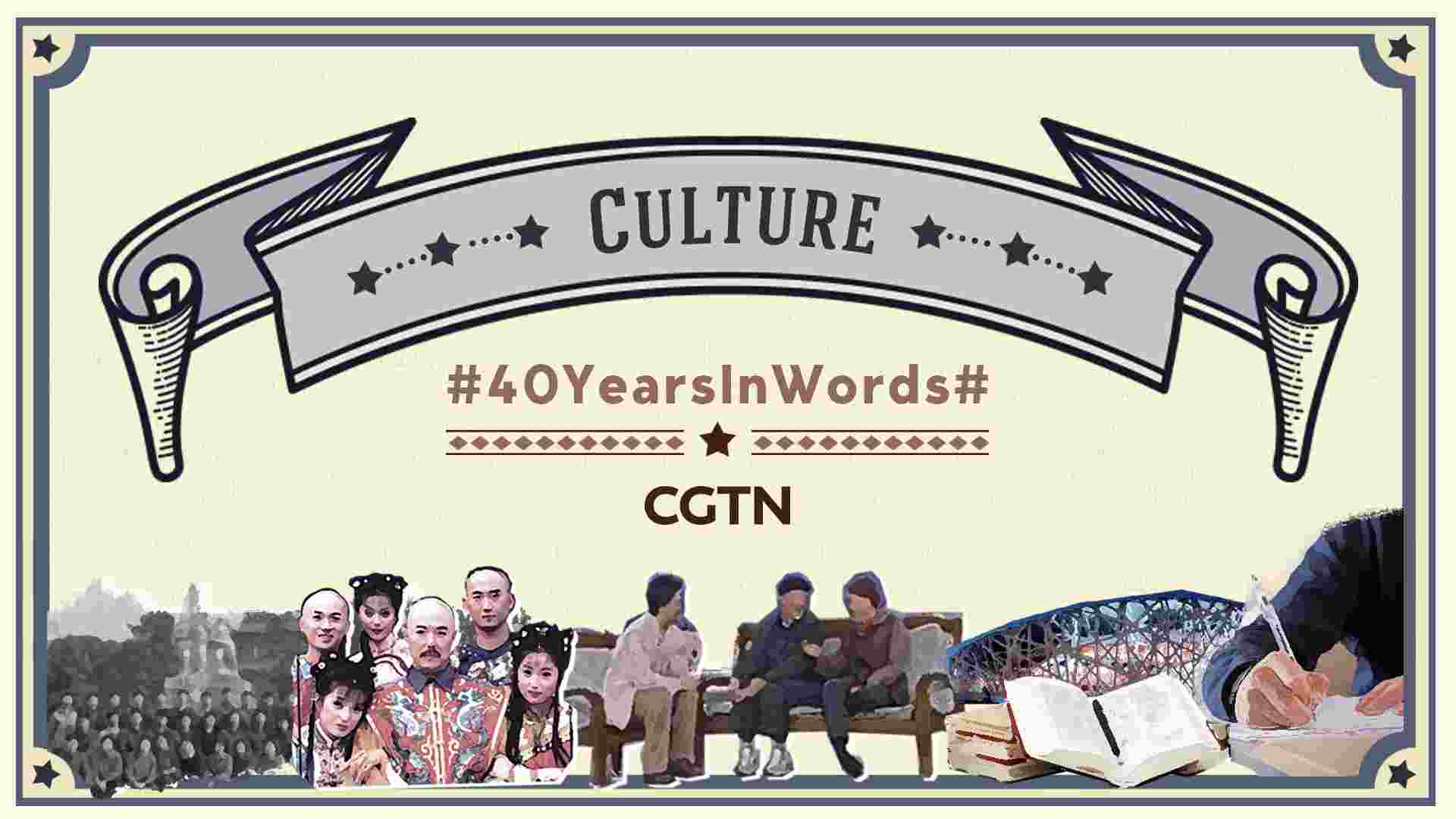
The policy of reform and opening-up initiated by late Chinese leader Deng Xiaoping in 1978 has been known as the force behind China's economic legacy, transforming the erstwhile planned economy into a market-driven one and making the country the world's second largest economy and top contributor to global GDP growth.
The historic drive, which has seen the country unleashing comprehensive reforms and opening its door wider to the outside world over the past four decades, has also brought in far-reaching influence and drastic changes to almost all walks of life from people's livelihood to the thriving culture and sports sectors.
This year marks the 40th anniversary of China's reform and opening-up. To commemorate the policy milestone and the profound changes it has ushered in, CGTN has compiled some of the most iconic cultural staples to show the galloping progress of the past 40 years.
Class of '77
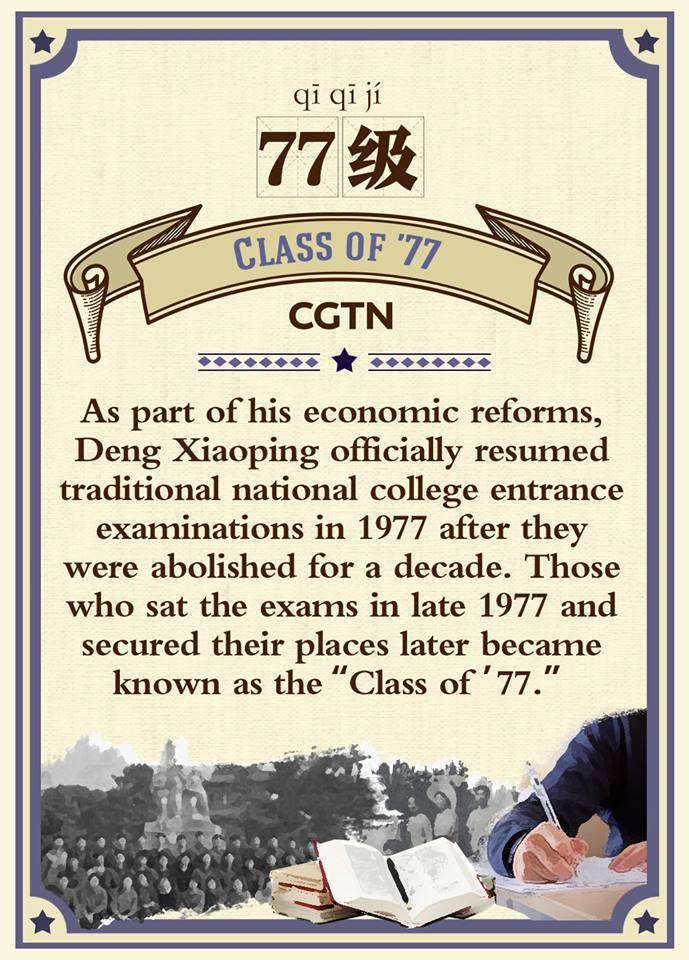
CGTN Photo
CGTN Photo
In 1977, Deng Xiaoping, the "chief architect" of China's reform and opening-up, made the historic decision to restore the traditional national college entrance examinations that were abolished in the chaos of the decade-long Cultural Revolution.
As a result, some 5.7 million people sat the exams in late 1977 with the hope of realizing their academic goals, which had been subordinated to political struggle. However, only 4.8 percent of the test-takers – around 273,000 people – won admission to universities, making it the lowest college acceptance rate in history.
These people were referred to as the "Class of '77," despite the fact that they started their degrees in the following year. Widely regarded as the brightest hopefuls of their time, many in this group became the backbone of China's transformation and modernization in the next four decades.
Today, sitting the annual national college entrance examination remains a stepping stone to many prestigious universities across the country, but higher education has become more and more accessible to students pursuing academic success as well as career competitiveness.
According to statistics from the Ministry of Education, 42.7 percent of China's high school graduates have been admitted to the country's colleges in 2016, a rise of 12.7 per cent from 2012. The number is expected to go beyond 50 per cent in 2019, as per the education watchdog.
Spring Festival Gala
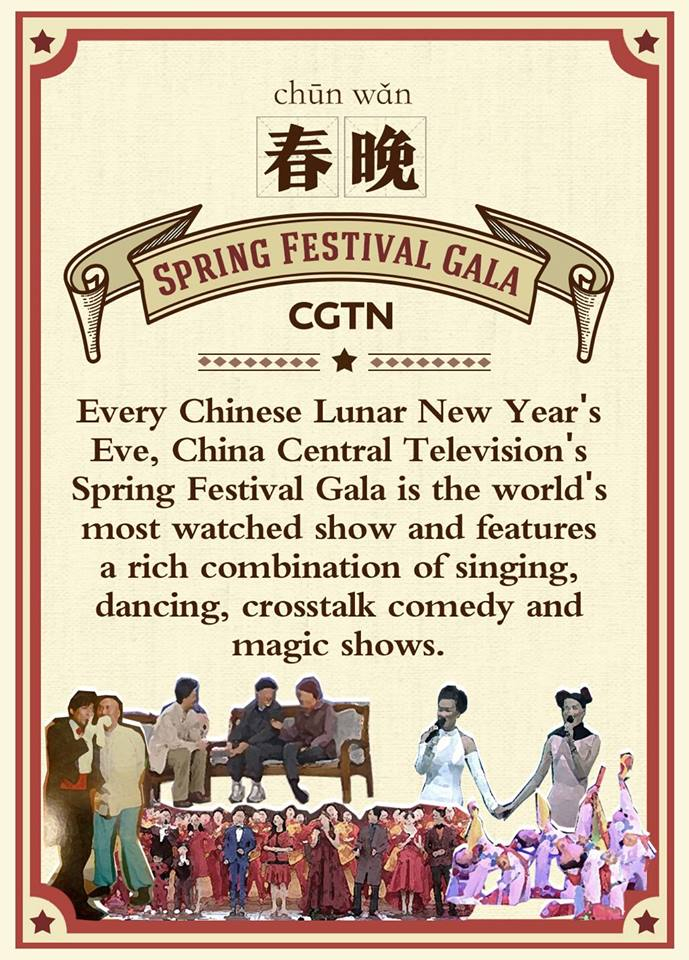
CGTN Photo
CGTN Photo
The Chinese Lunar New Year is undoubtedly the most important festival for the 1.3 billion Chinese people.
As an integral part of the festival celebrations, the Spring Festival Gala produced by China Central Television (CCTV), also known as “Chunwan,” is not only an annual fixture that has aired on the Chinese New Year's Eve since its debut in 1983, but also the world's most watched TV show in the world, with the number of people tuning in the gala around the globe hitting 700 million in 2017, according to the CSM Media Research.
On the eve of Spring Festival, Chinese families gather in front of TV screens at dinner time and watch the 4.5-hour marathon program, which combines singing, dancing, crosstalk comedy, Chinese operas, martial arts and magic shows. Every year, renowned singers, movie stars, Olympic medalists and astronauts frequent the annual extravaganza.
Ever since it began, the gala has not only been an entertainment trendsetter, it has also been a witness of China's economic growth and technology development.
With China's online population skyrocketing, the gala has been broadcast live on social media, including overseas platforms like YouTube and Facebook, since 2015. In the same year, the traditional show began partnering with Chinese tech companies to allow audiences to shake their phones for digital "red envelopes."
Even after 35 years of development, the gala is still evolving and innovating alongside the country and its people.
'The Return of the Pearl Princess'
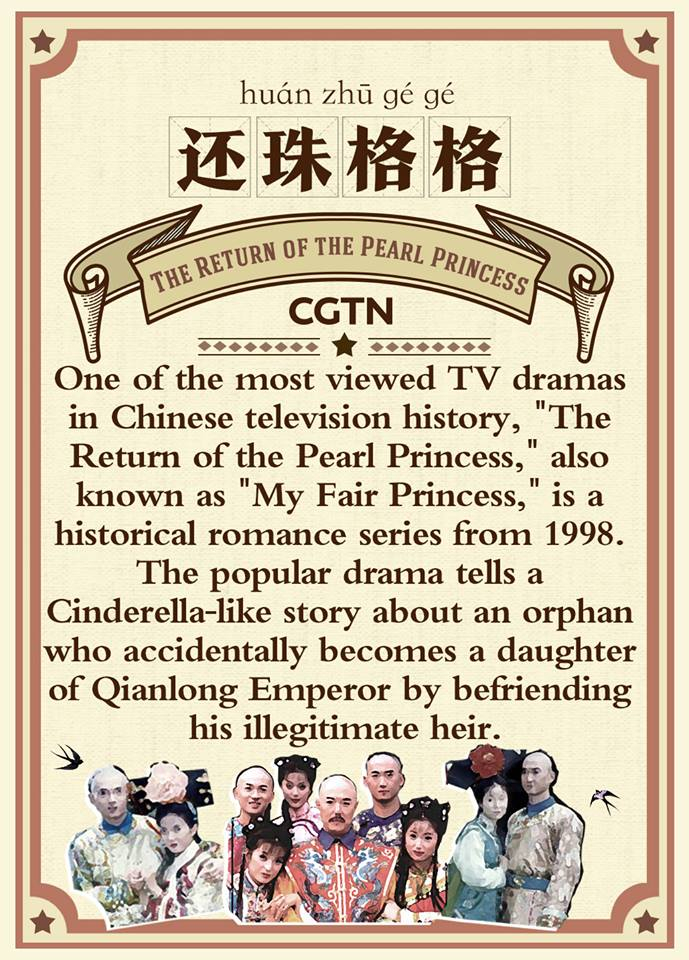
CGTN Photo
CGTN Photo
Costume dramas are incredibly popular in China but none can compare to the success and influence of "huanzhu gege", or "The Return of the Pearl Princess."
As one of the most watched TV dramas in Chinese television history, with a record-breaking viewership of 62.8% when the first of the three seasons aired in 1998, the hit show has been integral to the flourishing China's television industry which has boosted its TV program productions to meet people's ever-growing cultural demands.
Adapted from a novel by romance writer Chiung Yao, the period drama, also known as "My Fair Princess," tells a Cinderella-like story of Xiao Yanzi, a tomboyish orphan who was accidentally adopted by Qianlong Emperor after she was mistaken for the emperor's illegitimate heir, Xia Ziwei. The show became an instant hit in China and went on to take the massive international market by storm.
Rebroadcast for 16 times since its premiere, the blockbuster has once again topped Chinese ratings charts after it was rerun on Hunan Satellite TV since February 3 this year, igniting a wave of nostalgia from millennial viewers who grew up with the show.
Beijing Olympic Games
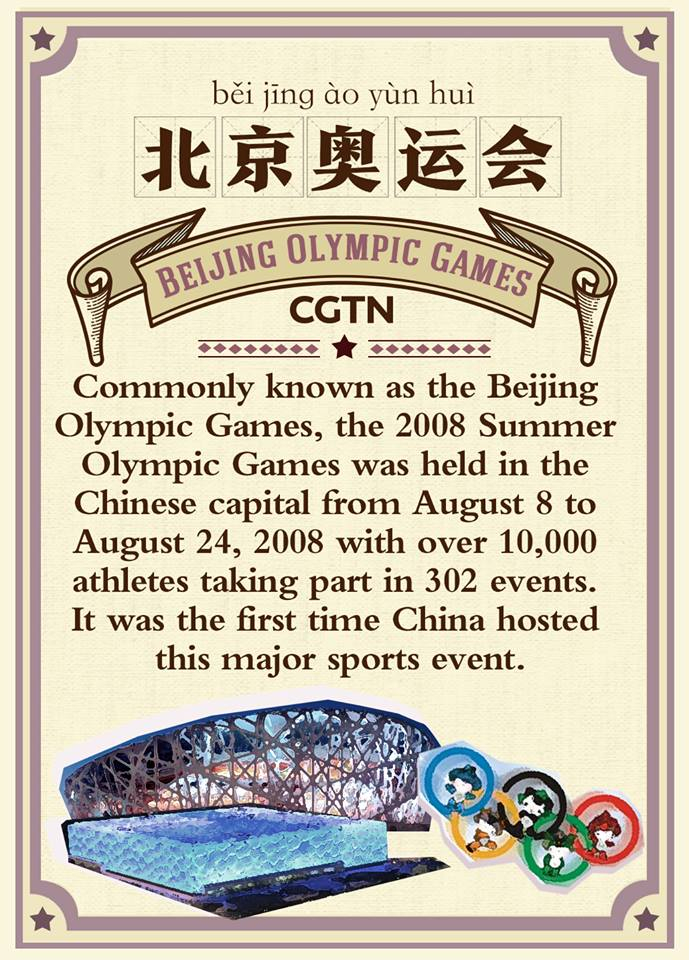
CGTN Photo
CGTN Photo
Commonly known as the Beijing Olympic Games, the 2008 Summer Olympic Games was held in the Chinese capital from August 8 to 24, 2008 with over 10,000 athletes taking part in 302 events in 28 sports.
It was the first time China hosted this major sports event and the 2008 Games wowed the world with its magnificent opening ceremony and some unforgettable athletic achievements.
With 100 medals overall including 51 gold, 21 silvers, and 28 bronzes from its 639-athlete delegation, China topped the world's gold medal table and also achieved the largest ever medal tally in its Olympic history.
10 years on, the Beijing Olympic Games has remained a thrilling memory from 2008 for many Chinese – from its slogan "One World, One Dream" which was on everyone's lips, to "Fuwa," the mascot that crammed Beijing's souvenir shops, and from the glitzy opening and closing ceremony extravaganzas, orchestrated by legendary director Zhang Yimou, at the Bird's Nest to multiple defining moments on the field including the trend-setting Usain Bolt and the record-breaking Michael Phelps.
Beijing will become the first city in the world to stage both the summer and winter games by hosting the 2022 Olympic and Paralympic Winter Games, and the city is expected to once again stun the world with its lingering Olympic legacy.
This is part of the "40 Years in Words" special series that examines in key words some of China's policy milestones, changes in people's livelihood and cultural staples from the country's reform and opening-up to commemorate 40 years of the historic drive.
Related stories

SITEMAP
Copyright © 2018 CGTN. Beijing ICP prepared NO.16065310-3
Copyright © 2018 CGTN. Beijing ICP prepared NO.16065310-3